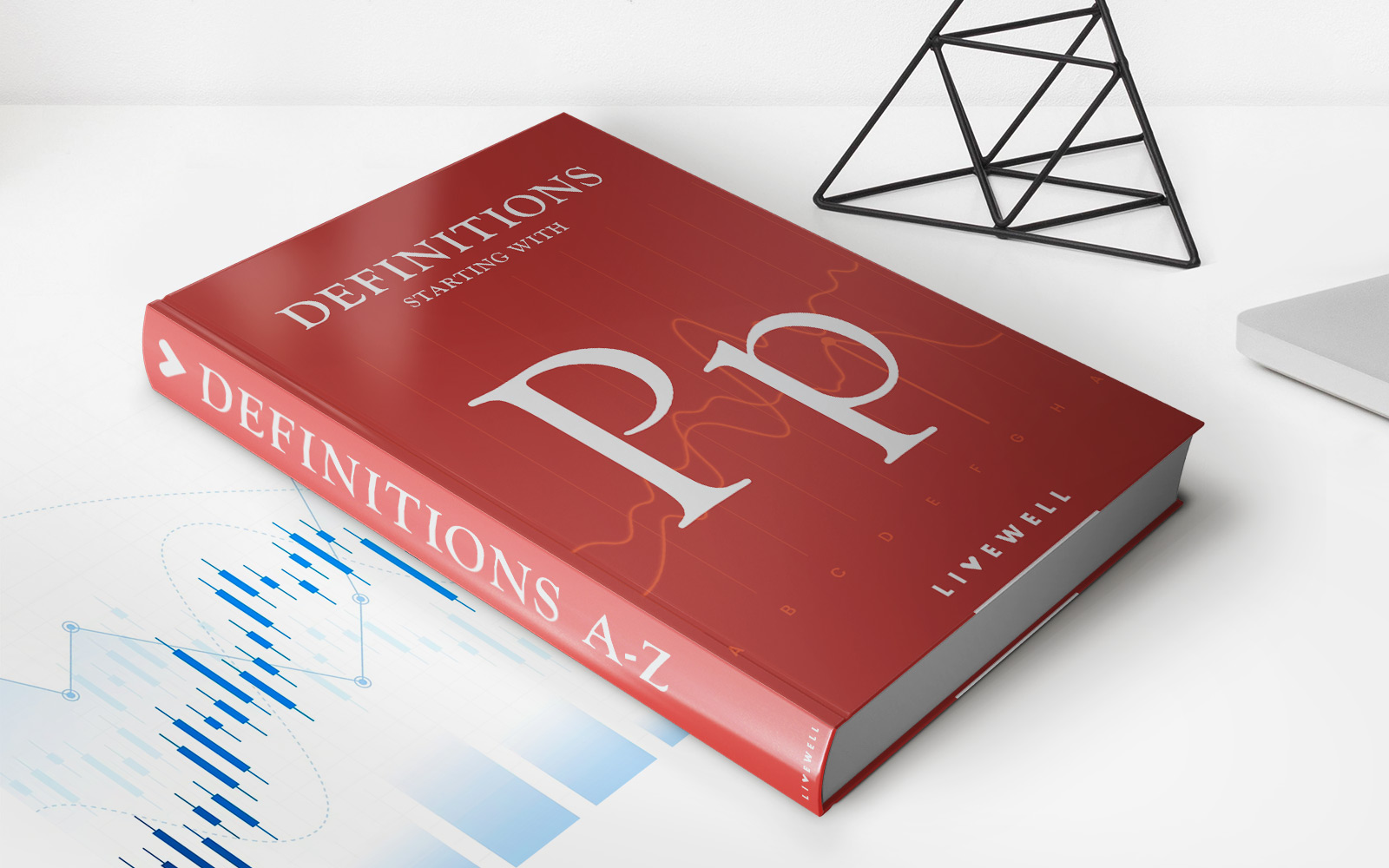

Finance
What Banks Offer CD-Secured Loans?
Modified: March 1, 2024
Find out which banks offer CD-secured loans and how you can use your finance to secure a loan. Explore your options and make an informed decision.
(Many of the links in this article redirect to a specific reviewed product. Your purchase of these products through affiliate links helps to generate commission for LiveWell, at no extra cost. Learn more)
Table of Contents
Introduction
Welcome to the world of CD-secured loans, where the financial landscape offers a unique opportunity for borrowers and savers alike. A CD-secured loan, also known as a certificate of deposit loan, is a financial product that allows individuals to borrow against the funds they have in a certificate of deposit. This type of loan provides a way for individuals to access funds while leveraging their existing savings. In this comprehensive guide, we will explore the ins and outs of CD-secured loans, including the benefits, drawbacks, and the banks that offer them.
CD-secured loans are a valuable tool for individuals who want to secure a loan without dipping into their existing savings. By using a certificate of deposit as collateral, borrowers can access financing at favorable terms, making it an attractive option for those seeking to meet their financial needs while preserving their savings. Understanding the nuances of CD-secured loans, including the institutions that offer them and the application process, is essential for making informed financial decisions.
Throughout this guide, we will delve into the intricacies of CD-secured loans, shedding light on the advantages and potential pitfalls associated with this financial product. By the end of this journey, you will have a comprehensive understanding of CD-secured loans, empowering you to make sound financial choices and navigate the world of banking with confidence.
Understanding CD-Secured Loans
CD-secured loans are a unique financial instrument that allows individuals to borrow against the funds they have in a certificate of deposit. A certificate of deposit, or CD, is a savings account that typically offers higher interest rates than regular savings accounts in exchange for the account holder agreeing to leave the funds untouched for a specified period, known as the term. The funds in a CD are used as collateral to secure the loan, providing a low-risk option for both the borrower and the lender.
When a borrower takes out a CD-secured loan, the funds in their certificate of deposit serve as a guarantee for the lender that the borrowed amount will be repaid. This arrangement often results in more favorable terms for the borrower, including lower interest rates and the ability to build credit history through responsible repayment. Additionally, since the loan is secured by the CD, the lender assumes less risk, which can lead to increased flexibility and accessibility for individuals seeking financing.
CD-secured loans offer a practical solution for individuals who require funds for various purposes, such as home improvements, debt consolidation, or unexpected expenses, without wanting to deplete their savings. By leveraging the funds in a certificate of deposit, borrowers can access the capital they need while retaining the benefits of their CD, such as earning interest and preserving their initial deposit.
Understanding the mechanics of CD-secured loans is crucial for individuals considering this financial option. By grasping how these loans function and the advantages they offer, borrowers can make informed decisions about their financial strategies and leverage their existing assets to meet their current and future financial needs.
Benefits of CD-Secured Loans
CD-secured loans present a range of advantages for both borrowers and lenders, making them a compelling financial option for individuals seeking funding. Some of the key benefits of CD-secured loans include:
- Favorable Interest Rates: Since the loan is secured by a certificate of deposit, lenders often offer lower interest rates compared to unsecured loans. This can result in cost savings for borrowers over the life of the loan.
- Preservation of Savings: By using a CD as collateral, individuals can access funds without having to deplete their savings. This allows them to maintain the principal amount in the CD, continue earning interest, and avoid early withdrawal penalties.
- Building Credit History: For individuals looking to establish or improve their credit, responsible repayment of a CD-secured loan can contribute positively to their credit history. This can be beneficial for future borrowing and financial opportunities.
- Flexible Loan Terms: CD-secured loans often offer flexible repayment terms, allowing borrowers to tailor the loan to their specific financial situation and goals. This flexibility can make it easier to manage repayments and align them with the borrower’s cash flow.
- Low Risk for Lenders: Lenders are more inclined to extend credit with favorable terms when a CD secures the loan, as it reduces the risk of default. This can lead to a smoother application process and increased accessibility to financing for borrowers.
These benefits make CD-secured loans an attractive option for individuals who want to access funds while maximizing the value of their savings. Whether it’s for a major purchase, debt consolidation, or unexpected expenses, the favorable terms and low risk associated with CD-secured loans can provide a practical and cost-effective solution for borrowers.
Drawbacks of CD-Secured Loans
While CD-secured loans offer numerous advantages, it’s important to consider the potential drawbacks associated with this type of financing. Understanding the limitations can help individuals make informed decisions and weigh the pros and cons of pursuing a CD-secured loan. Some of the drawbacks of CD-secured loans include:
- Tying Up Funds: When a CD is used as collateral for a loan, the funds in the CD are effectively locked, limiting the account holder’s ability to access or utilize those funds for the duration of the loan. This can restrict financial flexibility and access to the original deposit.
- Risk of Default: If a borrower is unable to repay the loan, the funds in the CD may be used to cover the outstanding balance. This could lead to the loss of the CD and any accrued interest, impacting the account holder’s savings and financial plans.
- Opportunity Cost: While the funds are tied up in the CD-secured loan, the account holder may miss out on potential investment opportunities or higher-yield savings options that could have generated greater returns.
- Impact on Credit Availability: In some cases, using a CD as collateral for a loan may limit the account holder’s ability to use the same funds as security for other credit products or financial arrangements.
- Early Withdrawal Penalties: If the CD needs to be liquidated to cover the outstanding loan balance, early withdrawal penalties and forfeiture of interest may apply, resulting in financial penalties for the account holder.
Considering these drawbacks, it’s essential for individuals to carefully evaluate their financial objectives, risk tolerance, and short-term and long-term liquidity needs before opting for a CD-secured loan. While this type of financing offers favorable terms and lower interest rates, the potential constraints and risks associated with using a CD as collateral should be weighed against the benefits.
Banks Offering CD-Secured Loans
Several banks and financial institutions provide CD-secured loans, offering individuals the opportunity to leverage their certificate of deposit to secure financing. It’s important to explore the options available and compare the terms and conditions offered by different banks before deciding on a CD-secured loan. Some of the prominent banks that offer CD-secured loans include:
- Wells Fargo: Wells Fargo is known for offering CD-secured loans with competitive interest rates and flexible repayment terms. Borrowers can utilize their Wells Fargo certificate of deposit as collateral to access funds for various financial needs.
- Bank of America: Bank of America provides CD-secured loans, allowing customers to borrow against their existing certificates of deposit. The bank offers personalized loan solutions and may extend favorable terms to qualified applicants.
- Chase Bank: Chase Bank offers CD-secured loans with attractive interest rates and the convenience of using a certificate of deposit as collateral. Borrowers can explore tailored loan options based on their individual financial circumstances.
- Citibank: Citibank is another institution that offers CD-secured loans, enabling customers to access funds while retaining the benefits of their certificate of deposit. The bank’s loan products may feature competitive terms and a straightforward application process.
- Ally Bank: Ally Bank is recognized for providing CD-secured loans with transparent terms and no origination fees. Borrowers can leverage their Ally Bank CDs to secure financing without impacting their existing savings goals.
These banks are just a few examples of the many financial institutions that offer CD-secured loans. When considering a CD-secured loan, individuals should research the specific offerings of each bank, compare interest rates, loan terms, and eligibility requirements, and assess how well the loan aligns with their financial objectives and preferences.
It’s important to note that the availability of CD-secured loans may vary based on location and the specific products offered by each bank. Therefore, individuals interested in obtaining a CD-secured loan should directly inquire with their preferred banks to explore the options available to them.
How to Apply for a CD-Secured Loan
Applying for a CD-secured loan involves several key steps, and understanding the application process is essential for individuals considering this type of financing. Here’s a guide on how to apply for a CD-secured loan:
- Research Lenders: Start by researching banks and financial institutions that offer CD-secured loans. Compare the terms, interest rates, and eligibility requirements of various lenders to identify the most suitable option for your financial needs.
- Review Loan Terms: Once you’ve selected a potential lender, carefully review the terms and conditions of the CD-secured loan. Pay close attention to the interest rates, repayment terms, and any associated fees or charges.
- Prepare Documentation: Gather the necessary documentation, which may include identification, proof of income, details of the certificate of deposit to be used as collateral, and any other documents required by the lender.
- Submit Application: Complete the loan application provided by the lender. Be thorough and accurate when providing personal and financial information. Submit the application along with the required documentation to initiate the loan approval process.
- Wait for Approval: Upon submission, the lender will review your application and assess your eligibility for the CD-secured loan. This may involve a credit check and an evaluation of your ability to repay the loan.
- Review and Accept Terms: If your application is approved, carefully review the loan offer, including the interest rate, repayment schedule, and any conditions. Once satisfied, accept the loan terms to proceed with the disbursement of funds.
- Secure the Loan: The lender will require you to pledge the certificate of deposit as collateral for the loan. This may involve signing legal agreements and documentation to formalize the arrangement.
- Receive Funds: Upon securing the loan, the lender will disburse the approved funds to your designated account, providing you with access to the financing you need while your certificate of deposit remains in place.
- Manage Repayments: Adhere to the agreed-upon repayment schedule and fulfill your obligations under the CD-secured loan. Responsible repayment can positively impact your credit history and financial well-being.
By following these steps and maintaining open communication with the lender throughout the process, individuals can navigate the application for a CD-secured loan effectively and secure the financing they require while leveraging their certificate of deposit as collateral.
Conclusion
In conclusion, CD-secured loans offer a practical and low-risk option for individuals seeking financing while preserving their savings. By leveraging a certificate of deposit as collateral, borrowers can access favorable interest rates, flexible repayment terms, and the opportunity to build or improve their credit history. These loans provide a way to meet various financial needs without depleting savings or resorting to higher-cost borrowing alternatives.
While CD-secured loans present clear advantages, it’s important for individuals to carefully weigh the potential drawbacks, such as tying up funds and the risk of default, before committing to this type of financing. Evaluating personal financial goals, liquidity needs, and risk tolerance can help determine whether a CD-secured loan aligns with individual circumstances and objectives.
When considering a CD-secured loan, individuals should explore the offerings of different banks and financial institutions, comparing interest rates, loan terms, and eligibility requirements to find the most suitable option. Researching lenders and understanding the application process can streamline the journey toward securing a CD-secured loan and accessing the necessary funds.
Ultimately, CD-secured loans empower individuals to leverage their existing savings to achieve their financial objectives without sacrificing the benefits of their certificate of deposit. By making informed decisions and navigating the application process with confidence, borrowers can harness the value of their assets and secure the financing they need through CD-secured loans.
As with any financial decision, individuals are encouraged to seek personalized advice from financial professionals and carefully consider their unique circumstances before pursuing a CD-secured loan. Armed with knowledge and a clear understanding of the process, individuals can make informed choices that align with their financial well-being and long-term goals.














